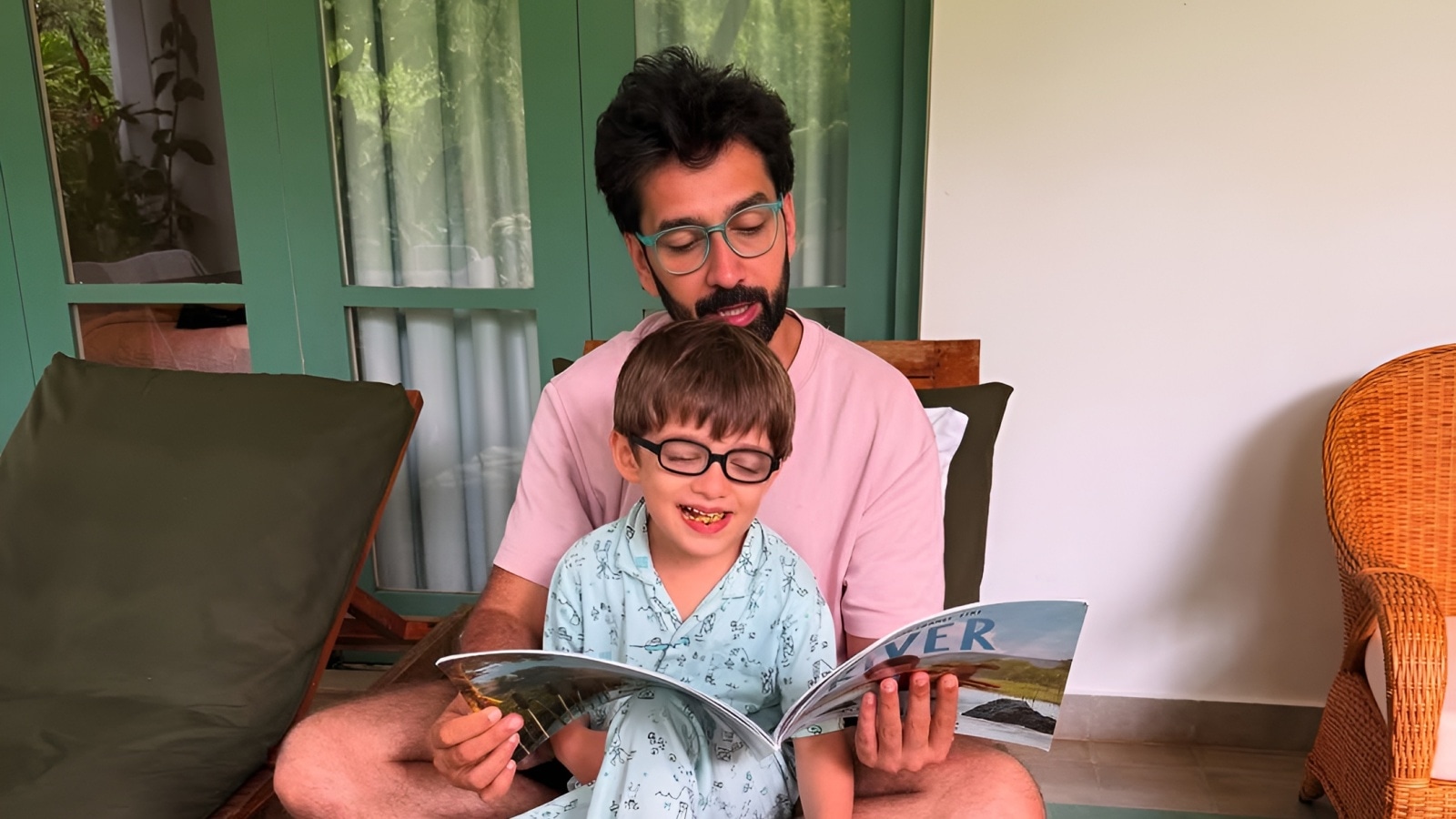
‘It can sometimes really break my heart’: Nakuul Mehta opens up about the ‘pain of being the second preferred parent’; ways to rebuild bond
Published on: Oct. 28, 2025, 7:30 p.m. | Source: The Indian Express
Television actor Nakuul Mehta recently poured his heart out in his parenting podcast, The Indian Parent POD Sufi and Folks, where he acknowledged that the pain of being second preferred parent is real. Mehta shared how this made him feel and what active steps he is taking, to manage the situation wisely. In a candid confession, he told his co-host and wife, Jankee Parekh Mehta: "In all the fun things, he is always looking out to do it with his daada. When he is in agony, he will bypass me and just run to you. It can sometimes really break my heart" The couple further shared how they try to strengthen Nakuul's bond with his son by ensuring that the three-year-old does all the "outdoor activities" like swimming with his father, and how Jankee takes a voluntary step back on many things like "bed time and bath time" to give the duo more time together. Taking a cue from the Mehtas, we decided to reach out to Neha Cadabam, Senior Child Pschologist at Cadabams Mindtalk, to understand better why kids sometimes are biased more towards one parent, and how should the parent handle that. View this post on Instagram A post shared by Nakuul Mehta (@nakuulmehta) 1. Why do children naturally gravitate toward one parent more than the other? The psychologist explains that children’s attachment preferences are shaped by emotional attunement: "the parent who instinctively 'gets' their moods, comforts them effectively, and responds consistently becomes their psychological anchor." They don’t just attach based on time spent but quality of emotional responsiveness. Sometimes, preference may also reflects temperament matching. "For example, an introverted child may feel safer with a quieter parent, or a spirited child may lean toward the one who engages playfully," Cadabam notes. She further adds that developmental phases also play a role: toddlers might prefer the nurturing parent, while adolescents gravitate toward the one offering autonomy. "It’s not rejection; it’s simply the child’s evolving emotional need for safety, validation, or freedom," she assures. 2. How does this affect the emotional wellbeing of the parent who feels left out? According to the psychologist, feeling like the “second choice” can sting deeply. It may trigger feelings of inadequacy, jealousy, or guilt, affecting the parent's self-esteem, especially, especially if they interpret the child’s behavior as personal rejection. "Left unacknowledged, this emotional hurt can lead to withdrawal or overcompensation — either distancing from the child or trying too hard to “win” their affection, both of which can reinforce the divide." Cadabams assures that the parents should understand that a "child’s preference is fluid, situational, and never a verdict on parental love or competence." 3. Is parental preference a normal developmental phase or a sign of deeper attachment issues? Cadabams assures that in most cases, it’s completely normal and temporary. As per science, parent-preference peaks between ages 2–6 and again in adolescence — both times when children assert independence and test relational boundaries. "However, if the preference is rigid, prolonged, or paired with fear or hostility toward the other parent, it may signal an insecure attachment pattern or environmental stress — for instance, inconsistent discipline, marital conflict, or emotional unavailability," In such cases, family therapy or parent-child interaction therapy (PCIT) can help rebalance emotional security. [also_read title = "Also Read" article_title= "‘Gentle parenting left me drained’: Why more Indian parents are embracing ‘FAFO parenting’ to let kids learn the hard way" id = "10210118" liveblog = "no" ] 4. How can the “less preferred” parent respond and rebuild connection without guilt or resentment? First, resist turning it into competition. Children sense emotional tension and guilt easily, which can make them anxious or manipulative in managing affection. Instead, focus on connection, not correction. Be consistent, not overbearing: Maintain gentle, reliable routines — bedtime stories, school drop-offs, or shared hobbies. Predictability builds safety. Mirror emotions, not demands: Say, “I can see you’re upset” instead of “Why don’t you love me as much?” Empathy invites closeness. Avoid triangulation: Don’t make the preferred parent a rival. Collaborative parenting models healthy emotional regulation. Reframe your worth: Attachment researcher Dan Siegel often says, “Connection, not perfection, is what children remember.” You’re not being replaced — you’re part of a dynamic that will evolve. If guilt or resentment lingers, therapy can help the parent process these feelings without letting them shape the relationship narrative.

